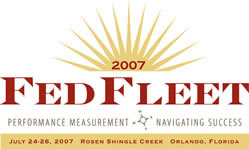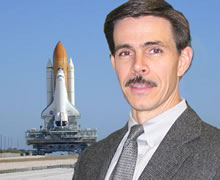 |
 Jon N. Cowart Jon N. Cowart Orbiter Engineering Manager NASA/Kennedy Shuttle Program Jon Cowart was born on Dec. 16, 1958, in Mobile, Ala. He lived all over the southeast but finally settled in the Atlanta area. After graduation from Tucker High School , he enlisted in the U.S. Air Force Reserve. He graduated from Georgia Tech in 1983 with a Bachelor of Aerospace Engineering degree and an Air Force commission. Second Lt. Cowart was assigned to the 6595th Shuttle Test Group at Vandenberg Air Force Base, Calif. , where he worked as a solid rocket booster mechanical systems and handling engineer for his first two years. Cowart was in charge of the first stack of boosters at Vandenberg and then was promoted to an orbiter mechanical systems engineer. He received the Air Force Distinguished Service Medal for his work in the shuttle program. In 1987, Cowart became a staff officer to Maj. Gen. Donald Cromer, commander of the Air Force's Space and Missile Test Organization. He resigned his commission as a captain in 1987 to join NASA. When Cowart joined NASA, he became a project engineer on the orbiter Atlantis. His primary duty was to oversee daily testing and preparations for flight of Atlantis. The job required extensive knowledge of the orbiter's systems and how they interact. In 1993, Cowart was one of 50 people chosen from throughout NASA to participate in the space station redesign and received the NASA Exceptional Achievement Medal for that effort. Cowart then became the chief engineer at Kennedy Space Center , where he was responsible for the orbiter's docking system, which is used to dock with the Russian Space Station Mir and the International Space Station. In August 1995, Cowart was selected to go to Washington, D.C. , and work on special projects for the chief engineer of NASA. Among these projects were next-generation spacesuits, launch vehicle reliability and NASA's conversion to the metric system. Upon his return from Washington , Cowart was named the chief engineer for the orbiter Discovery. In May 1996, he left the shuttle program to be the space station assembly flight 3A hardware integration manager. In July 1997, he was named the space station assembly flight 2A hardware integration manager. Flight 2A was comprised of the Unity connecting module and two pressurized mating adapters and was the first U.S.-launched component of the International Space Station. These components were launched on space shuttle mission STS-88 on Dec. 4, 1998. Unity's on-orbit activation was virtually flawless and now, along with the Russian FGB space tug named "Zarya" and the Russian Service Module "Zvesda," these components form the cornerstone of the International Space Station. Cowart was then assigned as the hardware integration manager for the inboard truss elements of the station. He was later appointed as the Kennedy Space Center mission manager for the U.S. Laboratory Module "Destiny" and the airlock. As the mission manager, Cowart was responsible for all of the acceptance testing, outfitting, testing and final preparation for flight of these two elements of the International Space Station launched on separate shuttle missions in 2001. After the successful on-orbit activation of the U.S. lab, Jon became the manager of the Orbiter Project Office at Kennedy representing the Orbiter Project Office located at the Johnson Space Center in Houston . His office is responsible for all design engineering problems and changes encountered and implemented at Kennedy. Cowart has a wife and two children. They live in Titusville, Fla. |
